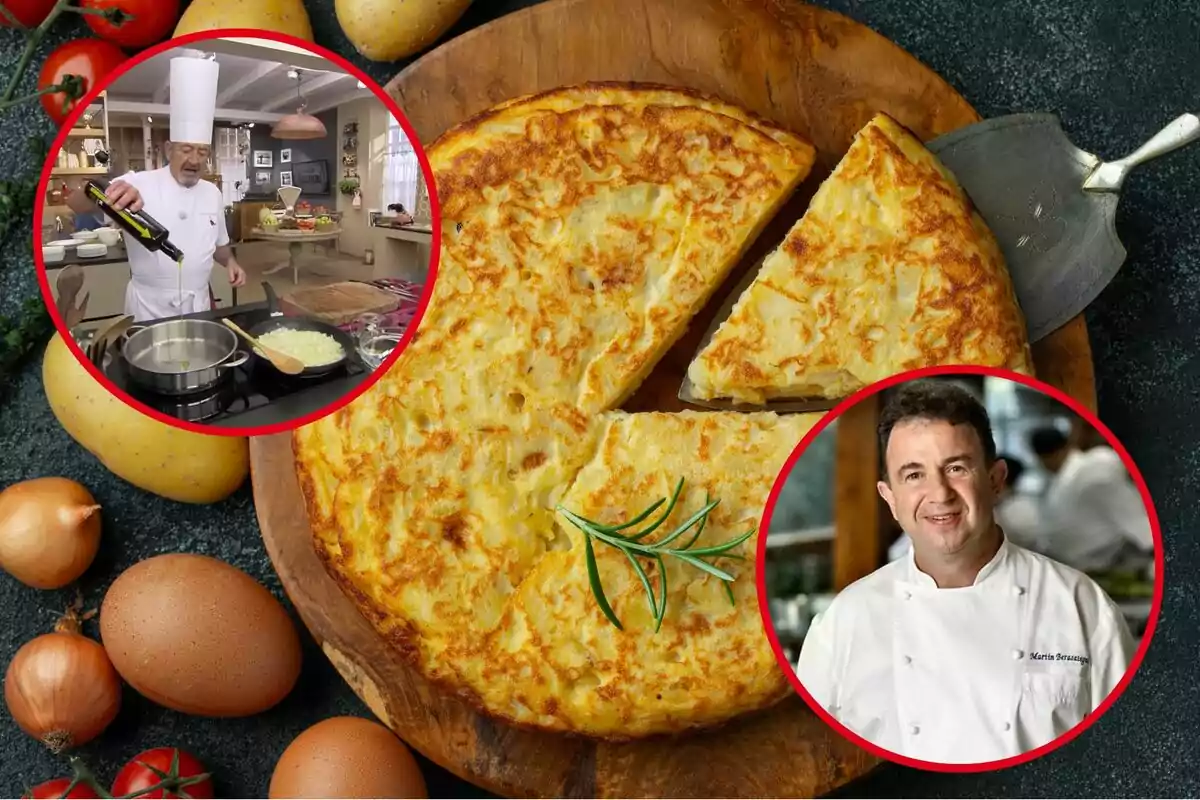It's not just a recipe. It's a statement, a collective memory, a popular spectacle, and above all, a way of understanding cooking as a communal act. Pep Salsetes, chef, gastronomic activist, and lover of Catalan culinary heritage, is making headlines again thanks to a giant omelet that, with 1,200 eggs, not only broke records but also warmed hearts.
All of this isn't the result of a famous media chef or a television show: it's the culmination of a life philosophy that champions rootedness, volunteerism, and the kitchen as a gathering place. The result? An omelet of epic proportions cooked with firewood, effort, and many helping hands.
When cooking means building community
It all began in Sant Andreu de Palomar, a Barcelona neighborhood to which Salsetes is closely linked by emotional and family ties. When asked to organize a spectacular and affordable culinary event for many people, the answer was as simple as it was forceful: "Let's make an omelet."

But not just any omelet. In a warehouse known as La Fabricot —where his grandmother worked— a wood fire was lit and, one by one, 1,200 eggs were cracked. Cooking wasn't an individual gesture, but a collective choreography: neighbors cracking eggs, volunteers feeding the fire, anonymous hands stirring the pan, and a large iron lid with embers on top to cook it from above.
The omelet took three hours to cook completely, but the wait was rewarded with an ovation from more than two thousand people. When it was time to serve it, with slices up to 75 centimeters (29.5 inches), it became a true ritual of togetherness. "Eating from the same plate, that's building community," Salsetes said.

Much more than a recipe: a book for memory
The omelet is just one example of what the book "Pep Salsetes. Un país a la cazuela" represents, published together with writer and filmmaker Agustí Corominas. It's not just a cookbook, but a life story in which anecdotes, culinary miracles, and opinions are mixed with traditional dishes that define a culture.
Salsetes, with his charisma and passionate discourse, recovers forgotten practices and highlights cooking as a tool for rootedness and cultural resistance. His message is clear: food isn't just nourishment, it's memory, belonging, and shared identity. The giant omelet is the perfect metaphor.
The symbolic value of eating together
For Pep Salsetes, the true merit of the omelet isn't gastronomic. In fact, he himself acknowledges that any omelet made at home will probably taste better. But there's an invisible ingredient that makes it special: the act of sharing.
"Eating from the same plate," he repeats as a motto. In a world where people eat alone more and more often, in front of a screen and with pre-cooked products, the experience of eating collectively becomes something revolutionary. Sharing the table means sharing time, emotions, and stories. It's about reclaiming a part of our humanity that seems increasingly sidelined.
This statement comes at a key moment, when community relationships are weakening and shared meals are giving way to haste and individualism. With his giant omelet, Salsetes literally puts an alternative on the table: a return to the kitchen as a space for unity.
Cooking is resistance
The experience of the 1,200-egg omelet reminds us that cooking can be much more than combining ingredients. It can be an act of collective love, a gesture of cultural resistance, and a way to build community in an increasingly disconnected world.
Pep Salsetes doesn't just offer us a giant recipe, but a life lesson: as long as there's fire, eggs, and people willing to collaborate, community can always be built. Perhaps, just perhaps, that's the true miracle we should preserve.

